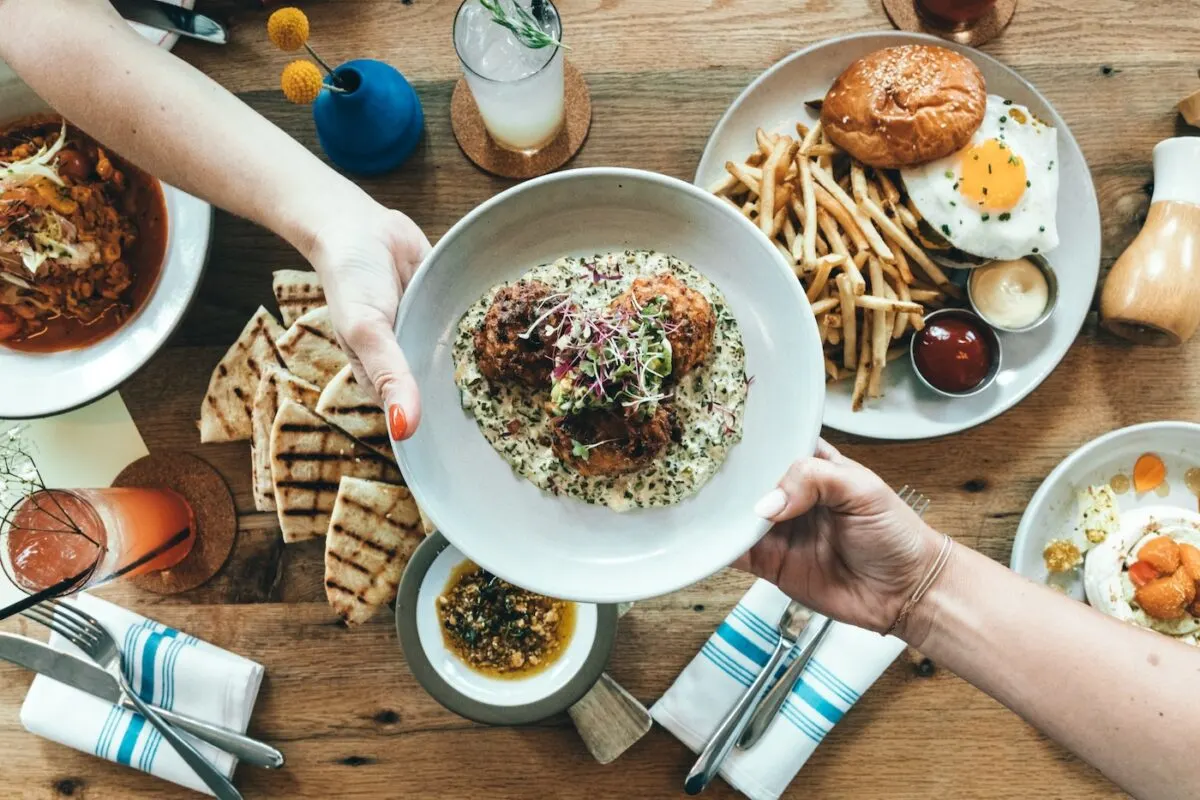When you notice a consistent and unwanted increase in your weight, it may not always be solely due to personal lifestyle choices or changes. It can be a disturbing realization that your weight gain might be the result of someone else’s influence, specifically your boyfriend’s. Relationships often play a significant role in personal health habits. If you suspect that your boyfriend is making you fat on purpose, it may stem from deeper issues within the relationship that need to be addressed.
Understanding why this behavior is manifesting is crucial. Insecurity or a desire to exert control might be at play. Weight gain as a tool to lessen your perceived attractiveness to others is an unhealthy tactic and speaks volumes about underlying dynamics. Knowing how to deal with such situations is essential. It involves confronting the problem head-on, engaging in open and honest communication with your partner, and re-establishing your autonomy over personal health choices.
Key Takeaways
- Identifying unexpected weight gain can be critical in understanding relationship dynamics.
- Encouraging weight gain may result from a partner’s insecurity or need for control.
- Open dialogue and reaffirmation of personal health choices are vital steps forward.
Reasons why your boyfriend is trying to make you fat
If you suspect your boyfriend is trying to influence your weight, understanding his motivation is key. Here are some specific reasons that could explain his behavior.

He is insecure
Insecurity might drive your boyfriend to try to make you gain weight, subconsciously believing that if you change physically, you’ll be less likely to leave him for someone else. This method may be an attempt to lessen his fears about the relationship.
He wants you to look less attractive
Some partners might think that by making you gain weight, you’ll appear less attractive to others. This misguided effort is sometimes rooted in the idea that if you fit society’s narrow standards less, you’ll stay in the relationship by default.
He wants control over you
Controlling tendencies can manifest in many ways, including trying to influence your weight. He exerts control by impacting your diet or discouraging exercise, which is a serious red flag in any relationship.
He likes big girls
Your boyfriend’s preferences may include a desire for partners with a fuller figure. If this is the case, he might encourage weight gain to fit his aesthetic preferences without considering your desires or health.
He lives an unhealthy lifestyle
If your boyfriend has unhealthy habits, such as a poor diet or lack of exercise, he may unintentionally influence you to adopt the same behaviors. This isn’t necessarily malicious but can lead to weight gain as a side effect of shared lifestyle choices.
He is trying to sabotage your goals
If you’ve set health and fitness goals but find that your boyfriend is undermining your efforts, this could be a tactic to keep you from achieving personal success that he might see as a threat to the comfort of the status quo in your relationship.
He is jealous of your weight loss efforts
Jealousy can emerge if you’re working towards weight loss, and he’s not. Instead of supporting you, he might engage in behaviors that discourage your progress as a way to cope with his own insecurities or competitive nature.
How to confront your boyfriend and get your healthy habits back on track
Creating a supportive environment for healthy living can sometimes involve delicate conversations and firm boundaries. If you suspect your boyfriend negatively influences your eating habits, addressing the issue tactfully and assertively is pivotal in guiding the relationship back toward a healthier path.

Set clear boundaries
Communicate openly with your boyfriend about your health goals. Be specific about what actions make you uncomfortable and how you need his support to maintain a healthy lifestyle. Ensure your conversation is direct about your need for boundaries that respect your dietary and exercise preferences.
Cook healthy meals together
Involve him in preparing healthy meals to spend quality time together and nurture healthier eating habits. Choose recipes that align with your diet, and perhaps suggest cooking a new recipe every week to keep things exciting and balanced.
Stick to your healthy lifestyle
Maintain your exercise routine and invite your boyfriend to join you. It not only helps you to stay on track but also sets a positive example. Emphasize the joy of being active together, whether it’s a gym session, a nightly walk, or a weekend hike.
Educate him
Take the time to talk to him about the importance of nutrition and how it affects your well-being and the relationship. Sharing articles, documentaries, and information about the benefits of a healthy diet can be eye-opening and may motivate him to embrace better eating habits.
Ask him to stop ordering junk food all the time
Be firm and set boundaries on how often you are willing to indulge in junk food. Let him know it’s okay occasionally, but frequent consumption is against your health goals. Suggest healthier alternatives that you both can enjoy without compromising on taste.
Reconsider the relationship
If his behavior continues despite your efforts, it may be time to reconsider the relationship. A partner should respect your choices and support your desire to lead a healthy life. If these values are not aligned, your well-being should be the priority.
Frequently Asked Questions: My boyfriend is making me fat on purpose
Navigating through issues regarding your partner’s influence on your weight can be complex. Here are some focused responses to common concerns you might face.
If you suspect your partner prefers you to be overweight, it’s crucial to communicate openly and honestly. Discuss your feelings about the situation and listen to your partner’s perspective. Seek to understand the underlying reasons for their preference and explain the importance of your health and well-being.
Embarking on a weight change journey should always prioritize your health. If your partner desires a change in your weight, discuss setting goals that align with healthy practices and desired outcomes. Consider consulting a healthcare professional for personalized advice and to develop a plan that benefits your health.
Comments about your weight from your significant other can be hurtful and damaging to self-esteem. If this happens, express how the comments make you feel and set boundaries. Let them know your weight is personal, and any discussions should be approached with sensitivity and respect.
Feeling pressured by a partner to gain weight can be a concerning sign of a controlling relationship. Address the issue directly by reaffirming your autonomy over your body and decisions. If the pressure persists, consider seeking support from friends, family, or professionals who can provide guidance and help address the situation.
